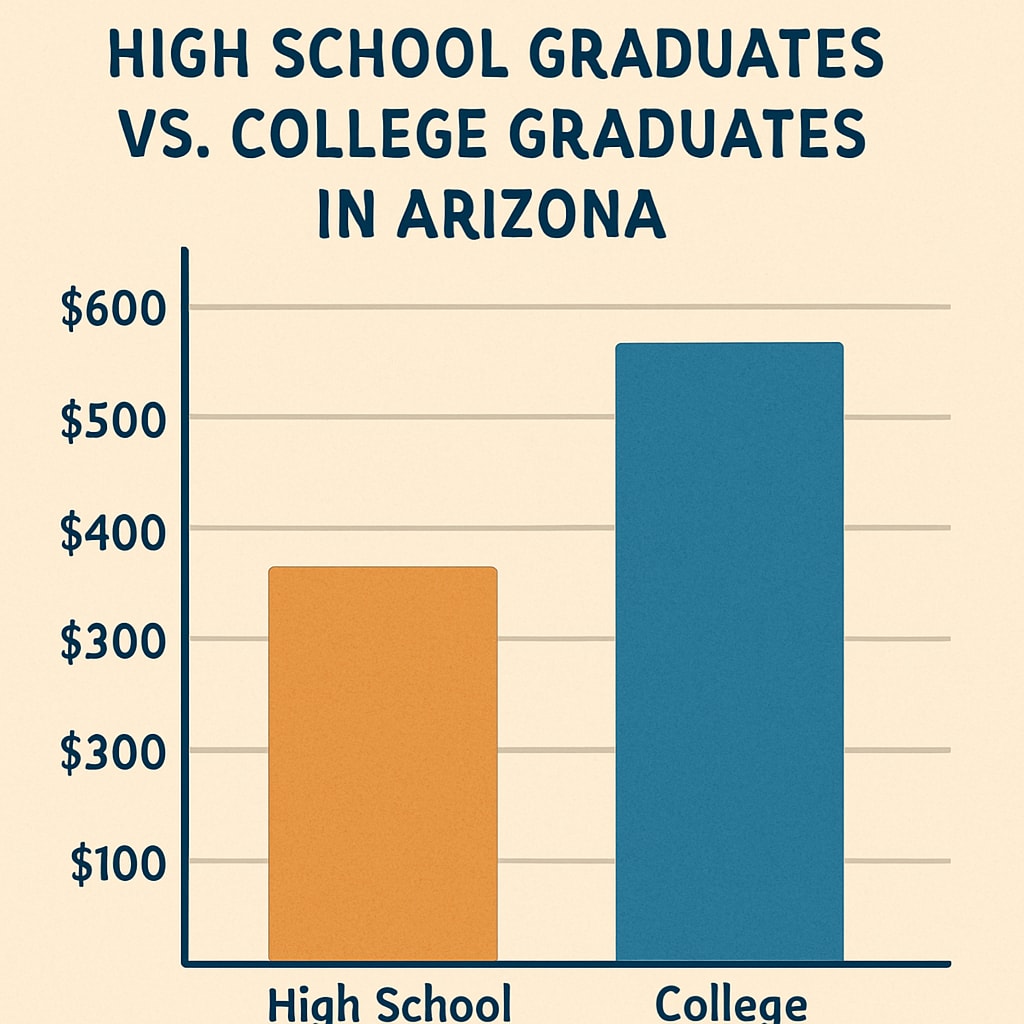The growing tension between degree requirements, employment discrimination, and education policy in Arizona highlights a concerning paradox. In recent years, the state has seen a rise in cases where individuals with high school diplomas are preferred over those with college degrees for certain roles. This trend raises critical questions about the alignment of education systems and employment practices.
Understanding the Degree Dilemma in Arizona
Arizona’s employment landscape reflects a broader issue in how education is valued. While high school diplomas are seen as a baseline qualification, college degrees, paradoxically, are sometimes viewed as over-qualifications. This phenomenon, often referred to as “degree discrimination,” undermines the investments individuals make in higher education. It also reveals systemic flaws in connecting K-12 education with higher learning institutions and labor market demands.
According to a report on education systems, successful employment policies should reward skillsets and education proportionately. However, Arizona’s policies seem to contradict this principle. Employers often cite reasons such as “overqualification” or the risk of job dissatisfaction as justifications for preferring candidates with less formal education.

The Impacts of Misaligned Education and Employment Policies
Such policies have far-reaching consequences. On the one hand, they discourage individuals from pursuing higher education, reducing college enrollment rates. On the other hand, they perpetuate employment discrimination by penalizing those who have invested time and resources into earning advanced degrees.
Some key issues arising from this misalignment include:
- Underemployment for degree holders, where individuals take jobs beneath their qualification level.
- Stagnation in skill development as the workforce is not incentivized to upskill.
- Reduced economic mobility for those who invest in higher education but fail to gain proportional career benefits.
The issue also reflects a broader societal challenge: reconciling the goals of education with the realities of the job market.

Addressing the Paradox: Recommendations for Reform
To resolve this paradox, Arizona must adopt a more inclusive and skills-focused approach to education and employment policies. Below are some actionable recommendations:
- Revise Job Descriptions: Employers should focus on skills and competencies rather than rigid degree requirements.
- Bridge K-12 and Higher Education: Strengthen pathways between high school and college to ensure seamless transitions and relevant skill-building.
- Promote Lifelong Learning: Encourage continuous education through certifications, workshops, and vocational training programs.
Additionally, governments and educational institutions must collaborate to align curricula with market needs. As highlighted by Wikipedia’s overview of higher education, a key aspect of reform is ensuring that education systems are adaptable and responsive to economic demands.
Conclusion: Rethinking Education and Employment Priorities
The paradox in Arizona’s education policy serves as a wake-up call. While addressing degree requirements, reducing employment discrimination, and reforming education policies are no small tasks, they are essential for building a fair and equitable job market. By valuing skills and qualifications appropriately, Arizona can create opportunities that empower individuals and strengthen its economy.
Ultimately, the goal should be to create an education-to-employment pipeline that values every step of the learning journey equally, ensuring that neither high school diplomas nor college degrees are unfairly penalized.
Readability guidance: This article uses concise paragraphs, active voice, and clear transitions to enhance readability. Recommendations are summarized in lists to simplify complex information, ensuring accessibility for a wide audience.


